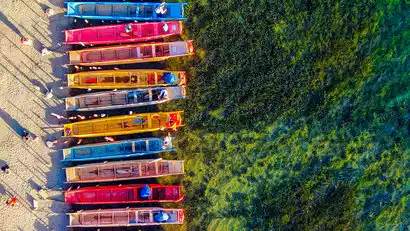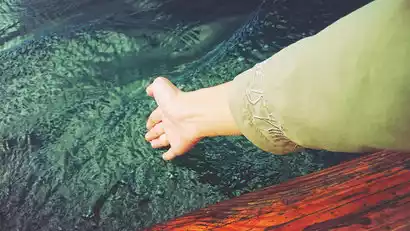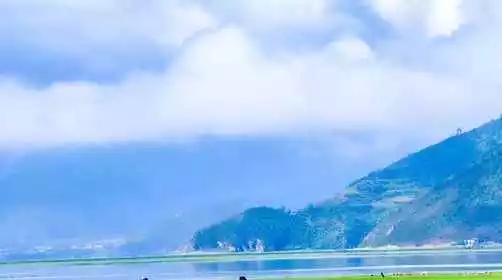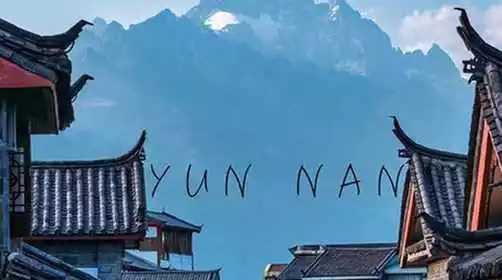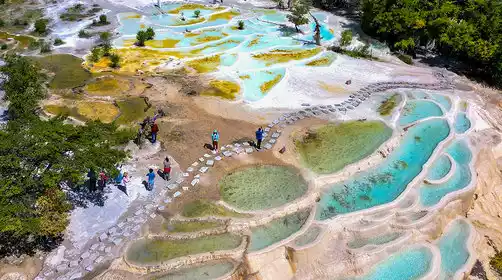Day 1 Various locations - Lijiang★Assembly Day
All day
First visit to Lijiang
Today is the meeting day. Please proceed to your designated hotel in Lijiang. Bookings of 2 or more people will receive a complimentary airport/station pick-up. (Send a text message three days in advance and create a WeChat group. Your butler will collect all the available departure information within the group.)
We won't be taking part in any planned activities today, leaving you ample time to fully experience Lijiang's culture and charm. You can stroll around Dayan Old Town and acclimate to the plateau climate, or enjoy a sunset at Qingxi Reservoir. After dark, the vibrant life of the ancient city is also worth anticipating. We recommend resting early to recharge your batteries and prepare for tomorrow's itinerary.
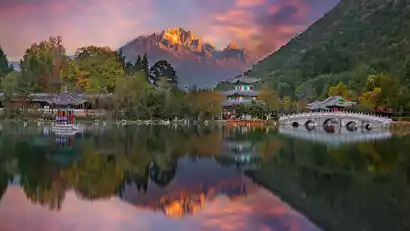
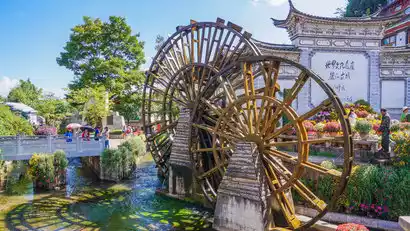
Day 2 Lijiang → Shangri-La
·morning
Tiger Leaping Gorge, a world wonder, feels the power of nature at the bottom of the valley
After breakfast, we'll drive to Tiger Leaping Gorge. The Jinsha River, originating in the Tanggula Mountains of the Qinghai-Tibet Plateau, travels thousands of miles to this point. Suddenly blocked by the Yulong and Haba Mountains, the once peaceful river becomes a raging rage. We'll visit the Upper Tiger Leaping Gorge observation deck and experience the striking power of the Jinsha River up close. This narrow section of the gorge is home to a massive rock, lying midstream like a cascading waterfall, splitting the rapids in two. The torrent is deafening.
Note: If Tiger Leaping Gorge is temporarily closed due to force majeure such as rainfall, the itinerary will be adjusted as follows:
Day 2: Lijiang - Songzanlin Temple - Napa Lake - Overnight in Shangri-La City. Day 3: The itinerary remains unchanged. Day 4: Tiger Leaping Gorge B&B - Tiger Leaping Gorge Scenic Area - Shaxi (Ma Gang Meal + Ma Gang Museum + Shaxi CW Tour) - Three Courses of Tea - Dali. Day 5: The itinerary remains unchanged, with no change in fees.
If Tiger Leaping Gorge remains closed on Day 4, the visit to the Tiger Leaping Gorge Observation Deck will be skipped, and the entrance fee will be refunded.
·afternoon
Ancient temples on the snowy plateau, seeking inner love and peace
After arriving in Shangri-La, we'll head to Songzanlin Monastery. Built into the mountainside, the temple resembles the Potala Palace in appearance. Its unique five-story carved Tibetan architecture embodies the essence of Tibetan plastic arts and is known as the "Tibetan Art Museum." We'll circle the lake around Lhamoyangcuo in front of the temple, then enter the temple to experience the profound culture of Tibetan Buddhism.
Napahai Essence Surrounds the Lake and Experiences the Ecological Beauty of the Plateau Wetlands
We will then take a short drive along the Napahai Lake Ring Road (July to August is the rainy season in Shangri-La, and some sections of the Napahai Road may be flooded. For safety reasons, we will choose a safe section around the lake). We will then proceed to the Napahai Observation Deck, overlooking the entire Napahai and Yila Grassland. In spring and summer, you can see vibrant plateau meadows with cattle and sheep leisurely grazing. In autumn and winter, Napahai is a habitat for many migratory birds, offering opportunities to observe these plateau elves from afar.
Dream of Shambhala, free stroll in Dukezong Ancient Town
In the evening, tourists will explore the Dukuzong Ancient Town on their own, enjoying dinner while strolling freely through the area. This ancient town boasts over 1,300 years of history. High above Dukuzong, visit Guishan Park, home to a massive, gilded copper prayer wheel (21 meters tall, weighing 60 tons, and a Guinness World Record). Join us in turning the wheel and chanting prayers. Everyone should rest well tonight and prepare for tomorrow's hike.
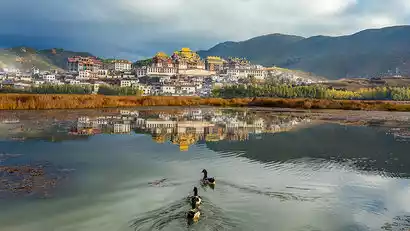
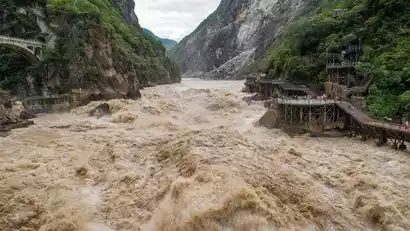
Day 3 Shangri-La → Tiger Leaping Gorge
·morning
Visit Pudacuo and experience the natural beauty of the national park
After breakfast, we'll depart for Pudacuo National Park, located in the heart of the Greater Shangri-La Scenic Area and a key component of the Three Parallel Rivers World Heritage Site. At the ticket office, we'll transfer to a scenic shuttle bus and journey deep into the heart of Pudacuo. Scenic area staff will provide a brief overview of the scenery along the way. After a 20-minute drive, we'll reach Shudu Lake, the core area of Pudacuo. We'll then hike along wooden plank paths to explore the tranquil and secluded plateau. Along the way, we'll admire lakes, wetlands, forest meadows, river valleys, and rare flora and fauna. We might even spot playful squirrels wandering right before our eyes, a delightful sight.
Special note: The scenery of Pudacuo in winter is slightly inferior to that in summer. The plank roads may be covered with snow or ice. Please pay attention to your footing when visiting.
·afternoon
Baishuitai geological wonder, Pamukkale of the East
Depart at the right time for Baishuitai. Located at the foot of Haba Snow Mountain, Baishuitai is a natural wonder formed by calcium carbonate dissolved in spring water. Its terraced appearance has earned it the nicknames "Immortal's Fields" and "China's Pamukkale." In the Naxi language, Baishuitai is called "Shibuzhi," meaning "growing flower." It is also the birthplace of the Naxi Dongba religion. Hike to the observation deck to marvel at this breathtaking natural wonder.
·night
Tiger Leaping Gorge View B&B, directly facing the B side of Jade Dragon Snow Mountain
In the evening, we were specially arranged to stay at the Tiger Leaping Gorge View Hotel, where we could gaze at the majestic Jade Dragon Snow Mountain on the opposite bank across the Jinsha River Valley, and calm down to feel the beauty of the world.
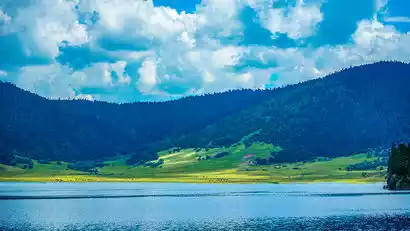
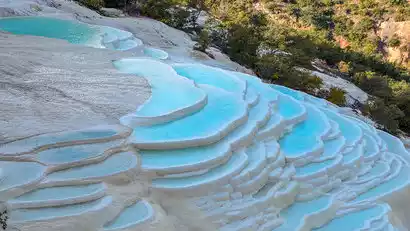
Day 4 Tiger Leaping Gorge → Shaxi → Dali
·morning
Shaxi CityWalk, looking for a windy place
Upon arrival in Shaxi, take the Shaxi City Walk. Walk along Sideng Street, see the ancient opera stage, pass through the ancient city gate, and step over Yujin Bridge to soak in the lingering breath of history. The crumbling stone pavement beneath your feet quietly recounts the bustling market life of yesteryear. Visit the century-old Xingjiao Temple and hear the echoes of a millennium of culture.
Experience the Caravan Culture at the Caravan Museum and Caravan Meal
Afterwards, we'll visit the Ma Gang Museum, a descendant of a horse caravan, and hear stories of the ancient tea-horse trade. We'll also sample the Shaxi specialty, Ma Gang Rice, and experience the unique cultural atmosphere of the ancient Tea-Horse Road. Special ingredients often require simple cooking methods to preserve their original flavors.
·afternoon
The Three-Course Tea of the Bai Nationality in Dali: A Glimpse into the Bai People's Lifestyle
The "Three-Course Tea" (三道茶) is a traditional tea drinking ritual used by the Bai ethnic group in Yunnan to entertain distinguished guests. Its unique "bitter first, sweet second, and aftertaste" (半味) has been a ritual for Bai families to entertain and socialize since the Ming Dynasty. The first "Three-Course Tea" is "bitter tea." A small sand pot is placed over a low fire. Once the pot is heated, tea leaves are added and the pot is rotated to ensure even heating. Once the leaves turn yellow and become fragrant, boiling water is poured in. After a short while, the tea is ready for tasting. Therefore, the roasted and boiled tea has a bitter taste and is therefore called "bitter tea." The second "sweet tea" is called "sweet tea." The tea is then placed in a small sand pot, roasted, and boiled again. A small amount of brown sugar, milk powder, or cinnamon is added to the teacup, resulting in a sweet and delicious brew. The third "aftertaste tea" is brewed in the same way, except that the teacup is filled with a moderate amount of honey, a pinch of popcorn, a few Sichuan peppercorns, and a pinch of walnut kernels. The cup is usually 60% to 70% full. This cup of tea tastes sweet, sour, bitter and spicy, with all the flavors present and leaving a lasting aftertaste.
In the evening, you can stay in a hotel near Dali Ancient Town and stroll around the town to find the literary and artistic corners.
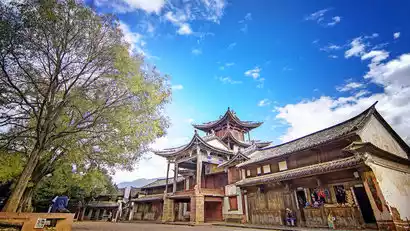
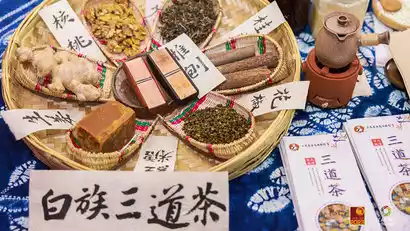
Day 5 Dali → Lijiang
·morning
Feel the atmosphere of fireworks at the morning market and learn about local food culture
The heart of a city's vibrant life is at its morning market. When visiting Yunnan, there's one thing you can't miss: visiting the morning market. Explore the market freely, discover amazing food, chat with locals, learn about cooking methods, and stumble upon surprising snacks.
Haixi's best cycling, enjoy the slow pace of life
After breakfast, we drove to the west shore of Erhai Lake and cycled through the highlight of the Haixi Ecological Corridor, a 44-kilometer stretch. We chose the section closest to Erhai Lake, with the lake to our right and Cangshan Mountain to our left. We cycled from the whitewashed Bai villages to the fragrant fruit fields. We left plenty of time for photos and a relaxing ride, enjoying the freedom and ease of the experience. For those who find cycling difficult, we can walk the corridor or relax in a cafe.
·afternoon
Stroll through Xizhou Ancient Town and experience the Bai ethnic customs
Depart for Xizhou Ancient Town at the right time. Xizhou Ancient Town is the soul of Dali, nestled against Cangshan Mountain to the west and bordering Erhai Lake to the east. Rich in Bai ethnic customs and steeped in millennia of history, it is one of the birthplaces of Dali culture. Known as "Dali City" during the Sui and Tang dynasties, it was one of the "Ten Eyes" of the Nanzhao period. This ancient town, weathered by time, resembles a fresh and elegant ink painting. In his "Travels in Yunnan," Lao She compared Xizhou to Cambridge, describing it as a marvel. Its quaint and tranquil beauty can only be experienced in person.
Go to Lijiang Shuhe Ancient Town and stay there at the right time.
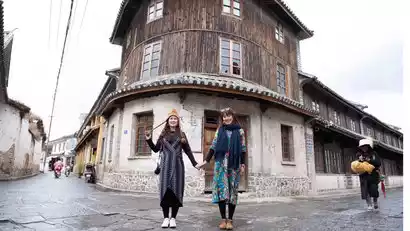

Day 6 Lijiang → Lugu Lake
All day
Explore the highlights of Lugu Lake and discover the Mosuo walking marriage
In the morning, we will gather at an appropriate time and head towards Lugu Lake. After passing through Ninglang, we will soon arrive at the Lugu Lake Observation Deck, where you can overlook Lugu Lake from the perspective of the Goddess Gemu Mountain.
Lugu Lake boasts Class I water quality, with visibility of 12 meters, making it visibly clear. The average depth of over 40 meters creates a variety of depths, creating a vibrant color palette. Surrounded by mountains and set against a backdrop of blue skies and white clouds, the lake adds a touch of ethereal beauty, creating a place where you can easily get lost. After lunch, we'll begin our lake tour, passing by popular and lesser-known check-in spots like Lover's Beach and Rigge Viewing Platform. Enjoy plenty of photos and a glimpse into the dreamlike beauty of Lugu Lake.
China-TravelNote also discovered a historic "Grandma's Room," a room that epitomizes Mosuo customs and culture, witnessing the entire process of life, aging, illness, and death. We also invited a renowned local scholar to give a "Mosuo Lecture" to better understand the culture of this remote nation of women.
Stroll along the lakeside and wait for the sunset over Lugu Lake. Evening delights await. At the Mosuo Bonfire Party, join hands with the young men and women as they sing and dance around the bonfire. As night falls, the Milky Way slowly rises, offering a chance to encounter a starry sky you haven't seen in a long time.
Special note: Winter is the off-season at Lugu Lake, so the Mosuo lecture hall and bonfire party may be suspended. If so, the experience will be cancelled and the fee will be refunded.
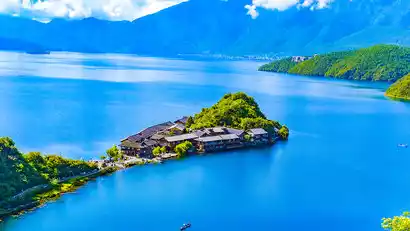
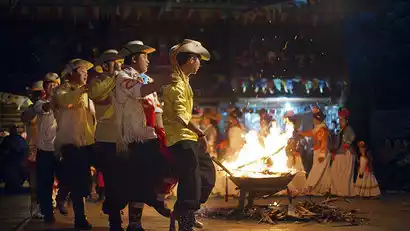
Day 7 Lugu Lake → Lijiang ★ Dismissal
·morning
Take a pig trough boat to Liwubi Island and enjoy the romance of Lugu Lake
Wake up in the morning and enjoy your own leisurely schedule. Stroll to the lakeside and witness the unmissable sunrise over Lugu Lake, quietly watching the sun slowly rise from behind the golden-rimmed clouds. After breakfast, head to Sanjiacun Wharf to board the Mosuo people's unique water transport, the Pig Trough Boat. Enjoy the morning views of Lugu Lake as the Mosuo boatmen sing their songs, drifting on the azure waters. Then, ascend to Liwubi Island and follow a winding path to the island's summit for panoramic views of Lugu Lake.
We will depart for Lijiang at an appropriate time and arrive in downtown Lijiang around 15:00 for disbanding. If returning on the same day, please book a flight after 18:00 or a train after 16:30. If staying in Lijiang, you must book your own accommodation for the night or use China-TravelNote to book a hotel.
Tourists returning on the same day are advised to take the airport shuttle or taxi to Lijiang Sanyi Airport (approximately 80-100 RMB). China-TravelNote also offers airport transfers at your own expense (100 RMB for a 5-seater car, 180 RMB for a 7-seater car, and 350 RMB for a 9-seater car). To arrange airport transfers, please click the link below to place your order online.
